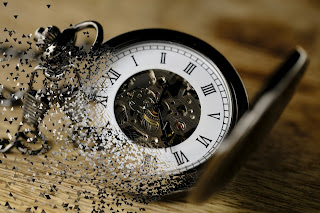The exotoxin mystery
Hello there,
Recently I've been preoccupied with the following question: Why do human bacteria produce exotoxins?! After all, if they are lingering happily with the nutrients at the site of infection, why harm the organism that harbors them?!
 |
| Credit: Wikimedia Commons. |
What struck me even more is that I haven't asked such a simple and rather primitive question earlier! why do bacteria produce exotoxins?" did not do so because they subconsciously think that "bacteria are bad, so it's natural that they harm us!". And after a moment of thought, I started to realize that this stems from our human tendency to polarize things and to take things to the extremes, being content with the simplest explanations that satisfy our child-like brains. People are either good or bad! This all-or-none mentality has been engraved into us from our early childhood, as a natural biological safety measure. As children, many of us saw our parents as the ultimate moral compass and strangers as the ultimate evil. As we start to grow up a little we start to see the shades of grey; the in-betweens so to speak. I bet anyone who has not asked the question ". Anyways, I digress.
So what is it that makes bacteria "want" to harm us afterall? Could it be that bacteria get more nutrients when they kill our cells? Could it be that they get more chance to propagate themselves and thus have an evolutionary advantage? Indeed, there is some truth to both claims. Bacteria that colonize mucosal surface do get more nutrients from the hemolyzed cells. As for the propagation, think of what diarrhea does by expelling bacteria with the feces and spreading to another host, having more nutrients and a greater chance for colonization. But what about toxins produced into the bloodstream? And does it really matter if bacteria move to a new host if the local conditions are enough to accomodate a large number of them? Afterall, isn't the colon big enough to accomodate so many bacteria that it become almost a non-significant advantage to each individual bacterium to produce the exotoxin?!
First, it turns out that bacteria don't produce the toxin alone. They cooperate. They send chemical signals among them to tell each other "it's time to fire now!" so that the collective effect of their toxins result in the significant harm required to debilitate their host. After all, how much exotoxin can each of these bacteria produce on its own? very little, right? But what if they fired together? Aaaah, you can see where I'm going. This is a phenomenon called Quorum sensing.
Second, bacteria may not benefit much from secreting exotoxins! So why do they do it?! And there comes our second psychological barrier to break: this illusion of purposeness. Because we see causality in our common life, we immediately and subconsciously assume that everything has a purpose. But this seems not to be the case under careful examination. Think of bacteriophages for example. What's their purpose? To infect bacteria? Or to propagate themselves?! Or do they have a purpose?
In fact, a very large number of bacterial exotoxins is coded by, or is intimately linked to, a prophage. And, literally speaking, the phage uses the bacteria to increase in number. By giving them exotoxins, it allows them to propagate itself. By increasing their survival, it increases its own survival. Previously we have asked: why is it that a bacterium shall produce exotoxin if it's not going to benefit it directly? Why produce an exotoxin for the "good of the bacterial colony"? Don't bacteria want to compete for the resources and outgrow each other? If the toxins produced do indeed benefit the bacteria, what should the non-toxigenic members benefit from the effect of the toxin produced by their fellow toxigenic ones?! The answer is probably in the phage. By allowing the survival of different varieties of bacteria, toxigenic and non-toxigenic, the virus has a greater variety of bacteria to infect, and a greater chance of having a more powerful host to carry its progeny. Confused? That normal! But if this article somehow helped brush up your sense of curiosity about this issue, do checkout this paper.
Cheers!
Cheers!



Comments
Post a Comment